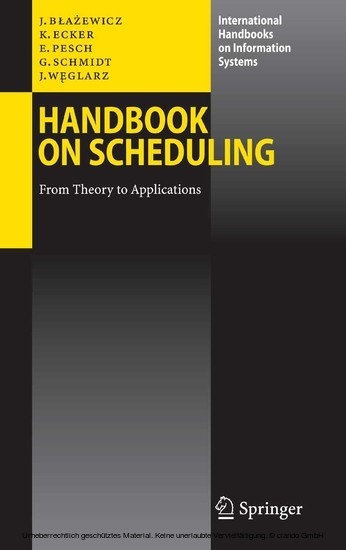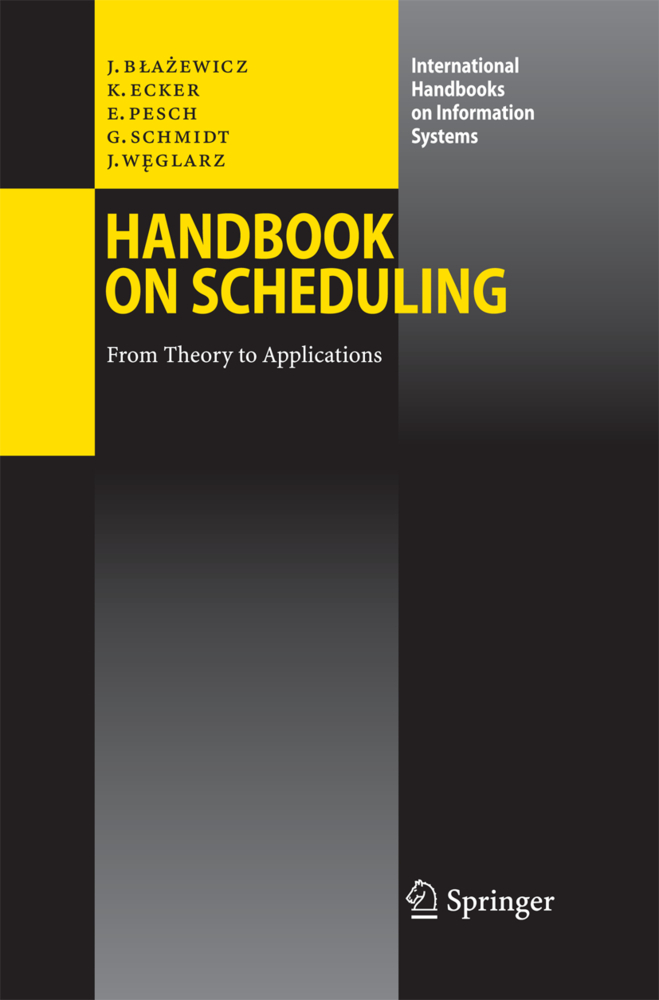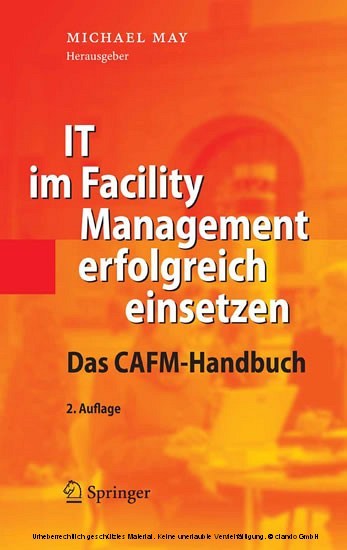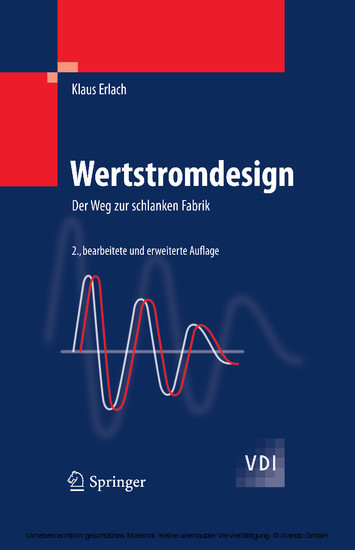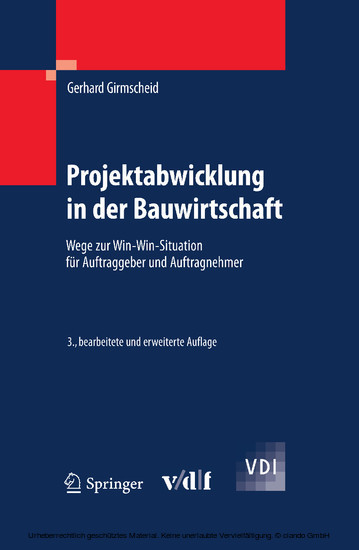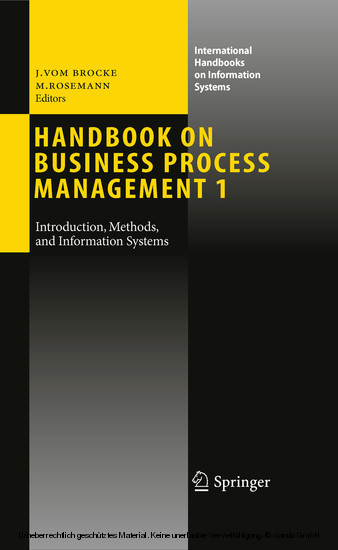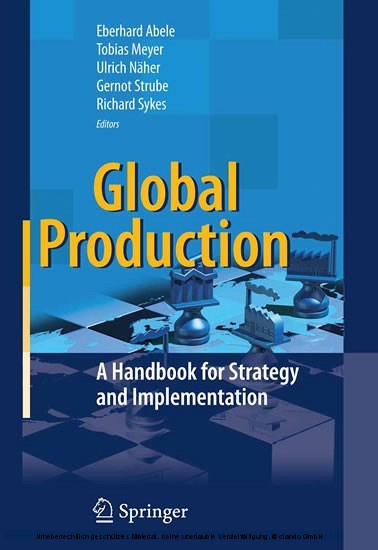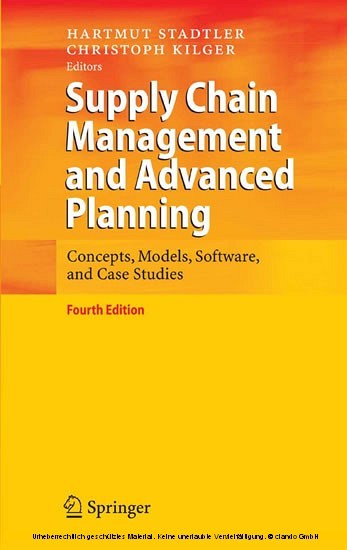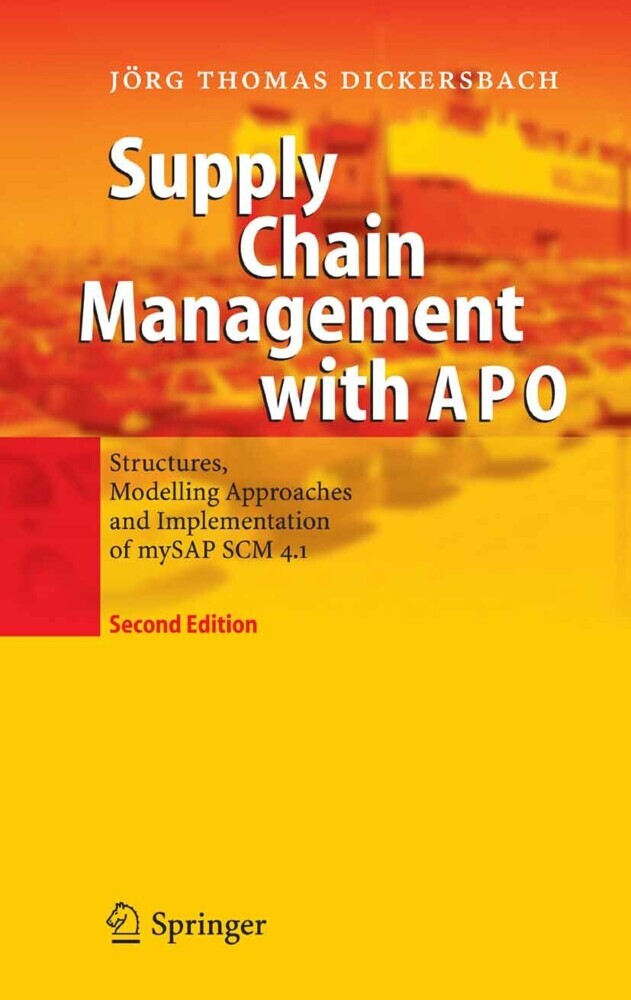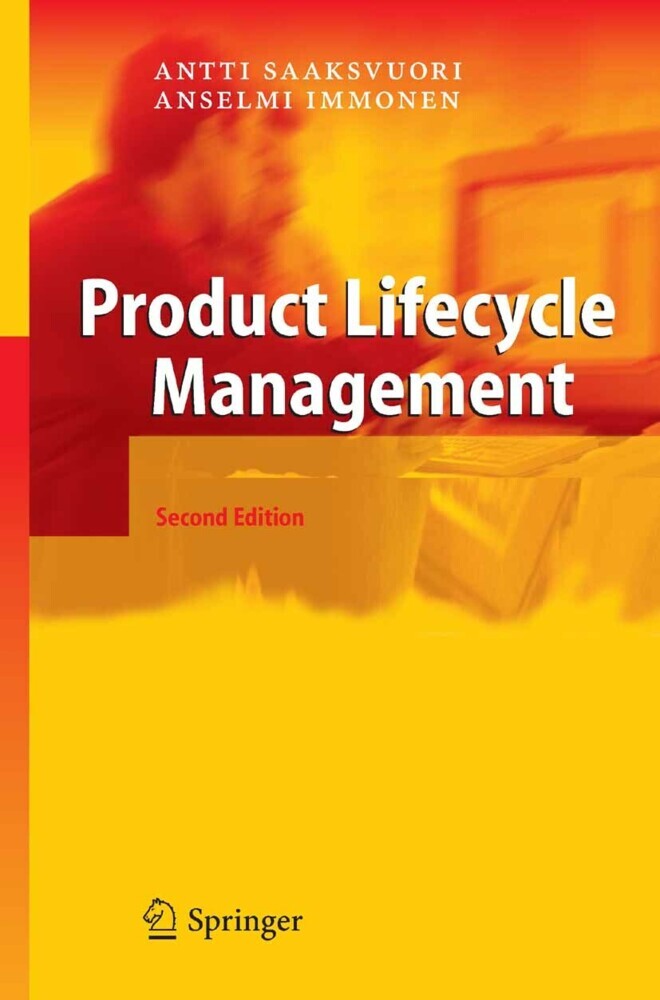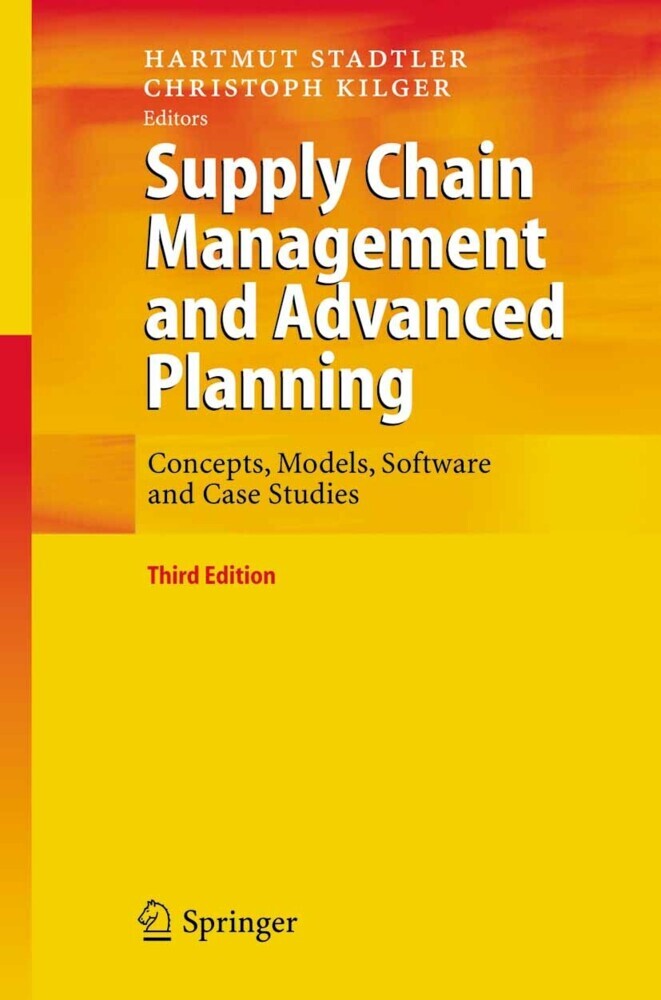Handbook on Scheduling
From Theory to Applications
This book provides a theoretical and application-oriented analysis of deterministic scheduling problems in advanced planning and computer systems. The text examines scheduling problems across a range of parameters: job priority, release times, due dates, processing times, precedence constraints, resource usage and more, focusing on such topics as computer systems and supply chain management. Discussion includes single and parallel processors, flexible shops and manufacturing systems, and resource-constrained project scheduling. Many applications from industry and service operations management and case studies are described. The handbook will be useful to a broad audience, from researchers to practitioners, graduate and advanced undergraduate students.
1;FOREWORD;6 2;Contents;7 3;1 Introduction;13 4;2 Basics;21 4.1;2.1 Sets and Relations;21 4.2;2.2 Problems, Algorithms, Complexity;23 4.3;2.3 Graphs and Networks;33 4.4;2.4 Enumerative Methods;44 4.5;2.5 Heuristic and Approximation Algorithms;47 5;3 Definition, Analysis and Classification of Scheduling Problems;69 5.1;3.1 Definition of Scheduling Problems;69 5.2;3.2 Analysis of Scheduling Problems and Algorithms;74 5.3;3.3 Motivations for Deterministic Scheduling Problems;77 5.4;3.4 Classification of Deterministic Scheduling Problems;80 6;4 Scheduling on One Processor;85 6.1;4.1 Minimizing Schedule Length;85 6.2;4.2 Minimizing Mean Weighted Flow Time;95 6.3;4.3 Minimizing Due Date Involving Criteria;107 6.4;4.4 Minimizing Change-Over Cost;126 6.5;4.5 Other Criteria;134 7;5 Scheduling on Parallel Processors;149 7.1;5.1 Minimizing Schedule Length;149 7.2;5.2 Minimizing Mean Flow Time;180 7.3;5.3 Minimizing Due Date Involving Criteria;185 7.4;5.4 Other Models;194 8;6 Communication Delays and Multiprocessor Tasks;210 8.1;6.1 Introductory Remarks;210 8.2;6.2 Scheduling Multiprocessor Tasks;216 8.3;6.3 Scheduling Uniprocessor Tasks with Communication Delays;232 8.4;6.4 Scheduling Divisible Tasks;239 9;7 Scheduling in Hard Real-Time Systems;253 9.1;7.1 Introduction;253 9.2;7.2 Basic Notions;258 9.3;7.3 Single Processor Scheduling;262 9.4;7.4 Scheduling Periodic Tasks on Parallel Processors;274 9.5;7.5 Resources;275 9.6;7.6 Variations of the Periodic Task Model;276 10;8 Flow Shop Scheduling;280 10.1;8.1 Introduction;280 10.2;8.2 Exact Methods;283 10.3;8.3 Approximation Algorithms;291 10.4;8.4 Scheduling Flexible Flow Shops;300 11;9 Open Shop Scheduling;330 11.1;9.1 Complexity Results;330 11.2;9.2 A Branch and Bound Algorithm for Open Shop ScheduUng;332 12;10 Scheduling in Job Shops;353 12.1;10.1 Introduction;353 12.2;10.2 Exact Methods;360 12.3;10.3 Approximation Algorithms;368 12.4;10.4 Conclusions;395 13;11 Scheduling with Limited Processor Availability;405 13.1;11.1 Problem Definition;406 13.2;11.2 One Machine Problems;409 13.3;11.3 Parallel Machine Problems;411 13.4;11.4 Shop Problems;422 13.5;11.5 Conclusions;425 14;12 Scheduling under Resource Constraints;433 14.1;12.1 Classical Model;433 14.2;12.2 Scheduling Multiprocessor Tasks;444 14.3;12.3 Scheduling with Continuous Resources;458 15;13 Constraint Programming and Disjunctive Scheduling;484 15.1;13.1 Introduction;484 15.2;13.2 Constraint Satisfaction;486 15.3;13.3 The Disjunctive Scheduling Problem;500 15.4;13.4 Constraint Propagation and the DSP;504 15.5;13.5 Conclusions;537 15.6;13.6 Appendix: Bound Consistency Revisited;538 16;14 Scheduling in Flexible Manufacturing Systems;546 16.1;14.1 Introductory Remarks;546 16.2;14.2 Scheduling Dynamic Job Shops;549 16.3;14.3 Simultaneous Scheduling and Routing in some FMS;557 16.4;14.4 Batch Scheduling in Flexible Flow Shops under Resource Constraints;566 17;15 Computer Integrated Production Scheduling;590 17.1;15.1 Scheduling in Computer Integrated Manu-facturing;591 17.2;15.2 A Reference Model for Production Scheduling;596 17.3;15.3 IPS: An Intelligent Production Scheduling System;604 18;Index;638
Blazewicz, Jacek
Ecker, Klaus
Pesch, Erwin
| ISBN | 9783540322207 |
|---|---|
| Artikelnummer | 9783540322207 |
| Medientyp | E-Book - PDF |
| Auflage | 2. Aufl. |
| Copyrightjahr | 2007 |
| Verlag | Springer-Verlag |
| Umfang | 647 Seiten |
| Sprache | Englisch |
| Kopierschutz | Digitales Wasserzeichen |

